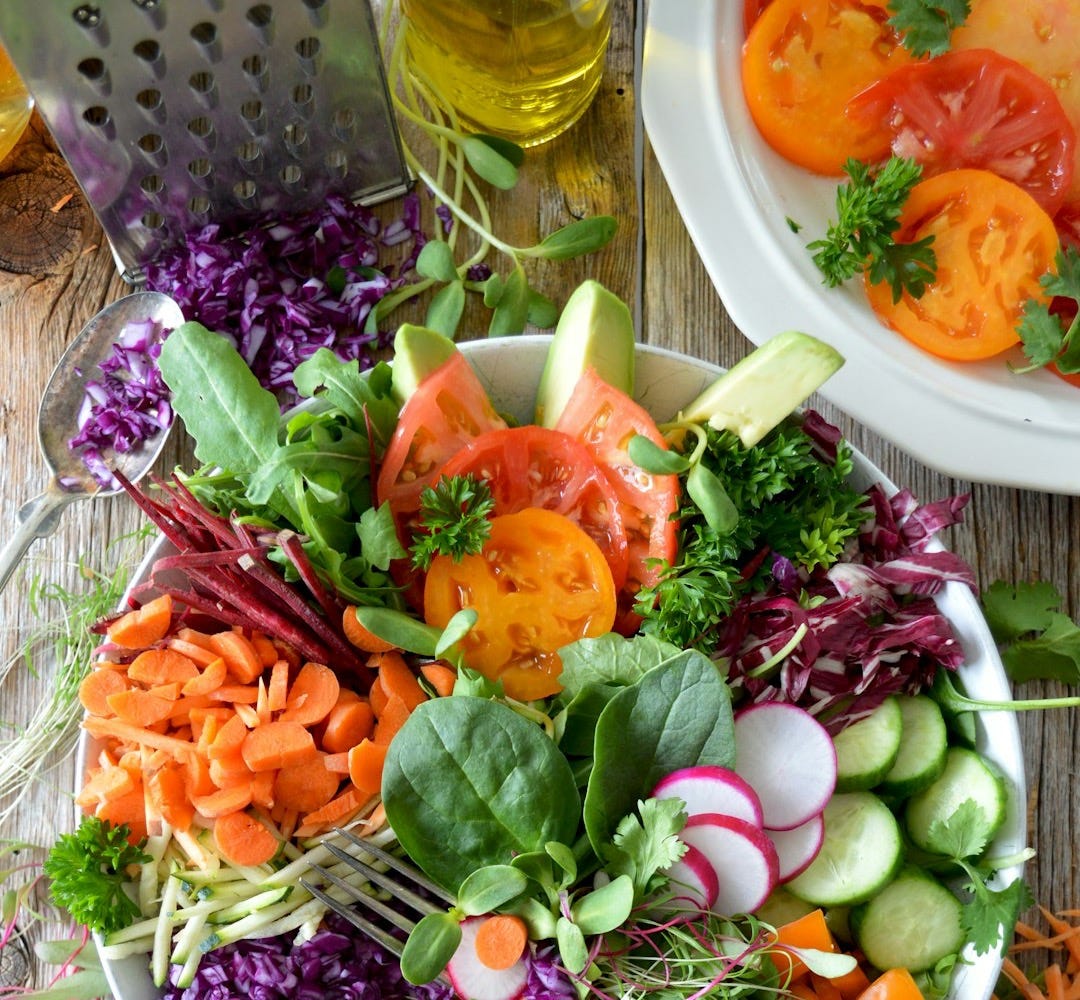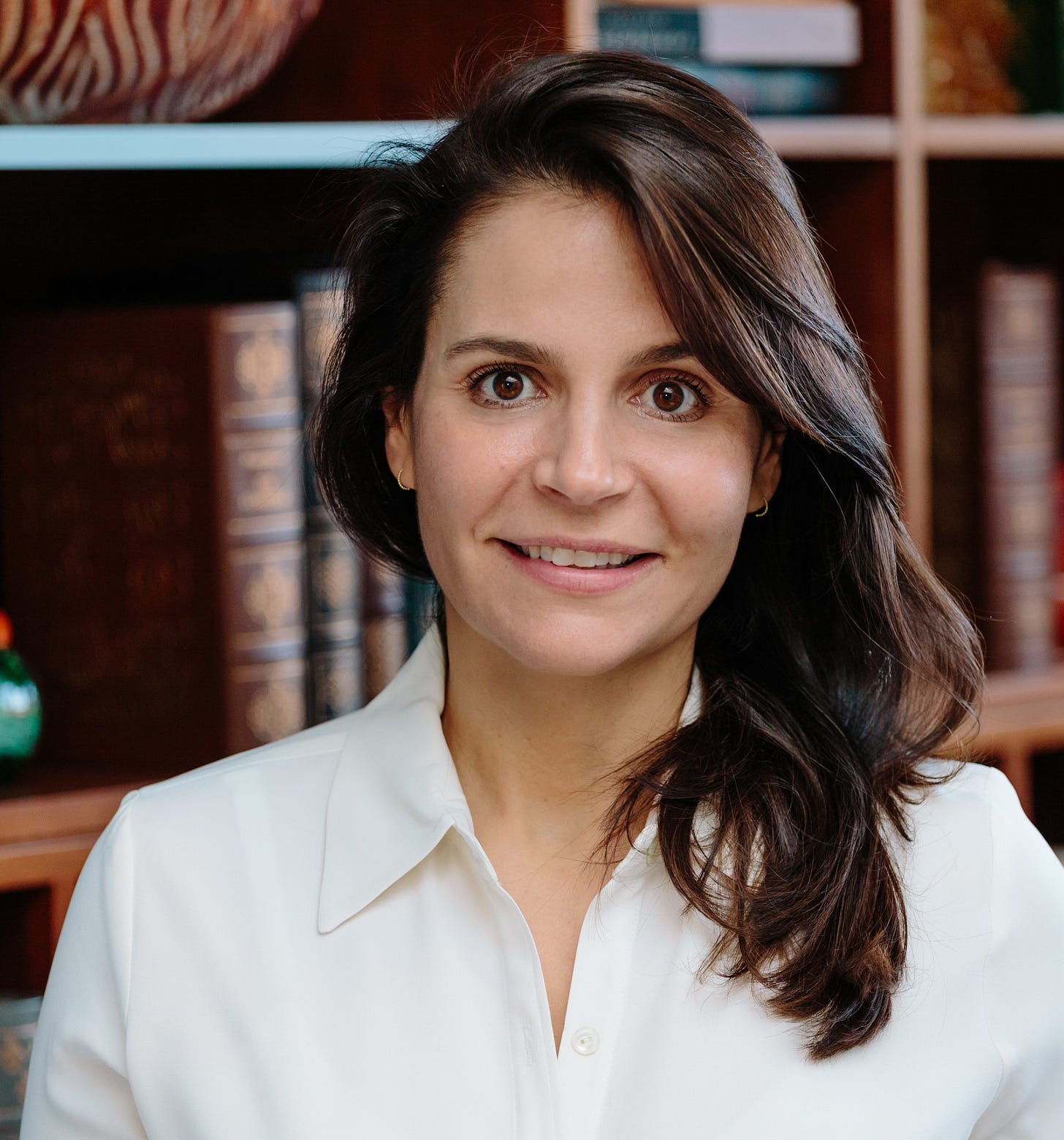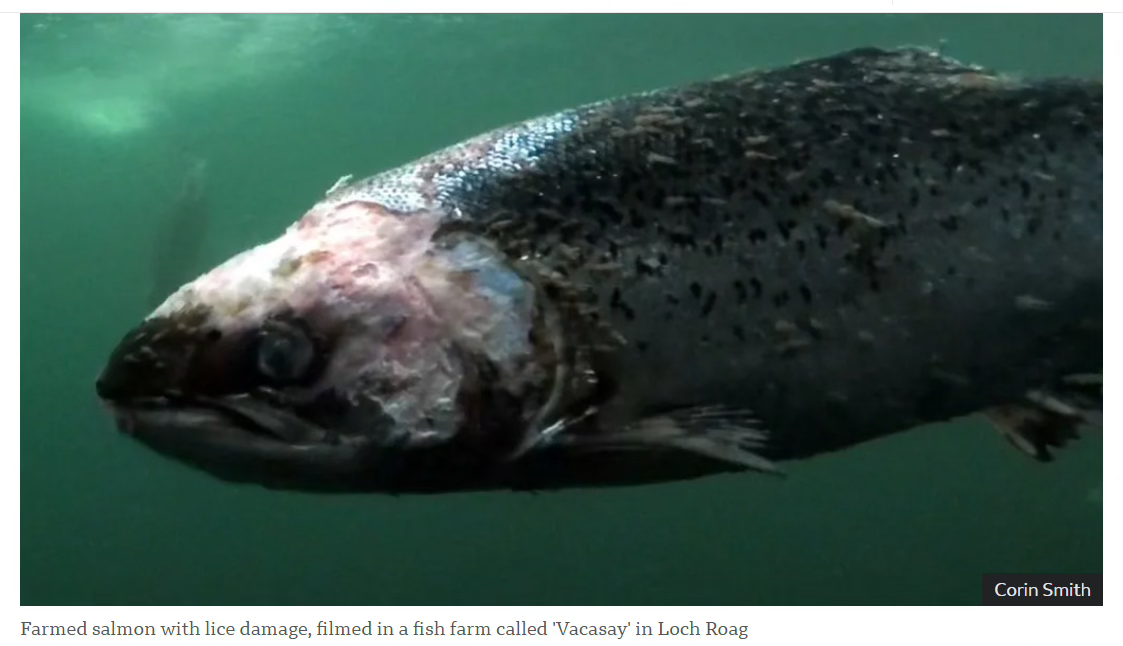Following her passion, as big as the ocean🐟
EVA DOUZINAS and Learning the truth about aquaculture fish
Zoomie Hangout!
This coming Tuesday, November 26 at 7 PM EST click the button to register!
Tune in NEXT WEEK for the podcast interview with EVA DOUZINAS!
WSG 126
We went to Greece to see a daughter and some fish farms…
Greetings, partners in midlife adventure!
We have returned from seeing our daughter who is teaching in Greece for the year. What a cool place to be! The food is fantastic and price is just right. The people are charming and patient. The weather was flawless. I don’t have to detox like I normally do when I go away! An all around great time!
At the end of our kid visit, Pel and I went to Poros, a little island an hour away from Athens by ferry. Why Poros? Because that is where the fish farm advocate and Maven of the Week Eva Douzinas is busy fighting the expansion of non-native species ocean based fish farming! See the video below for peak.
These fish farms are not new to the area but the issue is two fold: There is a plan to greatly expand them (by 24 times) on the shorelines of twenty Greek islands. And the fish, Salmon, Sea Bream (Branzino) are carnivorous and non native to the areas they are being farmed. When you learn about how they are raised you will not want to feed them to your family. When you consider the whole thing, you can’t believe it’s legal.
🐟 🐟 🐟 🐟 🐟 🐟 🐟 🐟 🐟 🐟 🐟 🐟 🐟 🐟 🐟 🐟 🐟 🐟 🐟 🐟 🐟 🐟 🐟 🐟
The following is a fictitious conversation between the Food Industry and the Money Person
Food Industry: I have a great idea!
Money Person: Can I make money off of it?
FI: Of course! I mean, we will go bankrupt a lot but the government will pay for us, and you get your fees and stuff first, so, yeah!
MP: OK, I’m in. What’s you bright idea?
FI: Well, first off, let’s get everyone to buy salmon. I mean it’s good for you, right? The only issue is that there is only so much salmon and it’s seasonal. But, we can fix that! You know how there is a lot of ocean out there? Like all over the place? Just sitting there, unused? Well, let’s start putting enormous cylindrical plastic nets by the dozens out there and fill them with carnivorous salmon or sea bream and grow them.
MP: Ok, I like the idea of using all that ocean. Wasted resource if you ask me. So let’s fill it with giant plastic floating nets packed with carnivorous non native fish. Cool.
FI: Ya. Right? But, the snafu is that these fish will eat each other in such a tight space so we need to drug them. No biggie.
MP: Ah.
FI: And, there are some health things like the sea lice that eat them alive, so we need to dose the fish for that too.
MP: OK.
FI: And, we need to feed these guys like A LOT so they get big and fat and weigh a lot$. We plan to fish in the poorer areas of the world and take their crummy little fish and turn them into fish food, mix with the drugs and don’t forget, the red dyes so they don’t look gray, and gross, which they do.
MP: But won’t the drugged weird fish food get out into the open and feed the wild fish? And Won’t the captive fish escape and breed with the native fish causing major trouble for the native species?
FI: Ya
MP: OK, sounds good to me! Cash me in!
🐟 🐟 🐟 🐟 🐟 🐟 🐟 🐟 🐟 🐟 🐟 🐟 🐟 🐟 🐟 🐟 🐟 🐟 🐟 🐟 🐟 🐟 🐟 🐟
EVA DOUZINAS is a new friend, but her daughter and my youngest have been friends since middle school.
I knew she sold the maritime software company she and her former husband had started and was getting involved in passion projects but I didn’t know much more than that. Eva is soft spoken and intensely shy, by her own admission. Don’t let her demeanor fool you. She has been interviewed lately by the world’s top news institutions to hear what she has to say about aqua farming. Why Eva? Read on, dear friends.
MAVEN OF THE WEEK: EVA DOUZINAS!
Jumping right in!
You sold the software company you co-founded and ran with your former husband a few years ago. Many people would take time to enjoy life but you hit the ground running. With your cousin you created a cultural and educational center in your father’s homeland, Poros, an island in Greece. You also recently took over as the head of the Vermont based Rauch Foundation with a focus area on expanding financial literacy education for middle school and high school students. Not exactly “retirement”.
But then something happened. The former mayor of Poros alerted you to a major concern for the island: aquaculture. While small fish farms for sea bass (branzino) and sea bream have been in place for over twenty years, a new plan to expand them across Greek coastlines by twenty four times what they are now, would take over 25% of the islands shores.
In your words, please share how you have become one of the world's major voices and organizers against aquaculture and why.
Eva’s response:
To clarify, aquaculture is a broad term that encompasses a wide range of practices, from sustainable small-scale farming of bivalves and seaweed to industrial-scale farming of carnivorous fish like salmon, sea bass, and sea bream. Our work focuses specifically on addressing the harmful, net-depletive impacts of the latter.
Industrial aquaculture first came to my attention due to an alarming plan to expand fish farms in Greece by 24 times, covering over 60,000 coastal acres in a relatively small country, similar in size to NY state. At the time, I wasn’t fully aware of the destructive impact of fish farming or the different types of aquaculture. However, the sheer scale of the proposed expansion set off alarms.
Leveraging the Rauch Foundation’s focus on research, we allocated resources to better understand the sector. What we uncovered was deeply concerning—despite significant warnings from environmental groups and scientists for years, industrial aquaculture has managed to expand exponentially and market itself as “sustainable,” obscuring its harmful practices. Today, approximately 80% of the salmon and nearly 100% of sea bass (aka Branzino) consumed in the US today is industrially farmed and imported.
Few realize that farming carnivorous fish such as salmon, sea bass (Branzino), and sea bream consume far more wild fish than it produces, with recent research showing that it takes 4 to 5 kilos of wild fish to produce 1 kilo of farmed fish. The wild pelagic fish used for feed are often sourced from vulnerable regions such as West Africa and South America, undermining local food security.
The farming process itself is rife with issues: it relies heavily on antibiotics and chemicals to combat sea lice and disease, yet even with these treatments, over 20% of farmed fish typically die before harvest.
The farming process itself is rife with issues: it relies heavily on antibiotics and chemicals to combat sea lice and disease, yet even with these treatments, over 20% of farmed fish typically die before harvest. Moreover, industrial open-net-pen aquaculture is the only form of farming that does not manage its waste—tons of untreated feces, excess feed, microplastics, and styrofoam flow directly into the ocean, devastating marine ecosystems. This pollution destroys essential habitats like seagrass meadows, which are critical carbon sinks; in the Mediterranean, the Posidonia seagrass is over 15 times more effective at capturing carbon than rainforests.
This industry depletes our oceans of wild fish, relies on destructive practices like trawling and overfishing for feed, reduces biodiversity, and devastates natural ecosystems—all to produce a limited range of marketable species, such as salmon, at an unnatural scale. Even here in Boston, a coastal city, most restaurant menus feature the same two or three fish options—almost always farmed and imported from distant locations. The paradox is striking.
Even here in Boston, a coastal city, most restaurant menus feature the same two or three fish options—almost always farmed and imported from distant locations. The paradox is striking.
While there have been some advancements, such as using fish trimmings for feed and exploring insects as a protein source, there is still no scalable, sustainable method to farm carnivorous species like salmon, sea bass, or sea bream. Alarmingly, this unsustainable form of aquaculture continues to expand, including along the coasts of Maine, despite strong community opposition. Notably, marine-based salmon farming has already been banned on the U.S. West Coast and more recently on Canada’s West Coast. Maine now stands as the only U.S. state where marine-based salmon farming is still permitted, highlighting the urgency for awareness.
Through the Rauch Foundation, we support coalitions and independent investigative journalism to expose the realities of industrial aquaculture. Our grant partners include initiatives such as the Global Salmon Farming Resistance, Don’t Cage Our Oceans, Feedback Global and The Outlaw Ocean Project, among some smaller groups, whose voices and research are challenging this harmful industry.
As in many countries, including the U.S., industrial aquaculture expands quietly, often without public awareness
In Greece, I co-founded the nonprofit Katheti, which works with Aktaia—a coalition of over 20 communities—to raise awareness about the environmental and social costs of fish farming. As in many countries, including the U.S., industrial aquaculture expands quietly, often without public awareness, exploiting shared resources and fragile ecosystems. By sharing the facts along with our partners, we strive to empower communities to protect their coastal environments, hold industry accountable, educate consumers about the health and environmental impact of their fish choices, and provide leaders with research needed to craft policies that prioritize truly sustainable practices over the destructive, net negative expansion we see today. Industrial fish farming is a complex and widespread issue that demands diverse voices and quality research to address effectively. Our foundation is committed to being part of the solution.🐟
Five Maven Questions for Eva:
What did you want to be when you grew up?
Above all, I wanted to me a mother and then I had a few phases where I dreamt of being a fashion designer, landscape architect, olive oil importer – most of all I pictured working for myself, doing something creative.
What are you excited about now?
I’m really excited to be learning more about how the song of the blue whale triggered international protection policies for whales around the world.
What books are on your bedside table?
Right now - Blessed Unrest by Paul Hawken and Rewilding the Sea by Charles Clover
What do you do to relax?
Long walks, ideally in nature
What category/subject would you add to the Guide?
Book Club
Favorite Recipe? I like these simple salad dressings attached from my relatives in Greece.
A RECIPE FROM EVA!

ELESSA’S SALAD DRESSING
Ingredients
1 part lemon juice
1 part white wine vinegar (slightly more than 1 part)
4 parts olive oil
significant salt and pepper
directions
mix very very well
TIMON’S FRENCH MUSTARD SALAD DRESSING
Ingredients
½ part Dijon mustard
½ part spicier mustard (horseradish mustard or green pepper mustard)
2 parts white wine vinegar
4 parts olive oil
½ part crushed garlic (optional)
salt, pepper
directions
mix very very well
RESOURCES AND ARTICLES from Eva
Recent Media:
Medium Article – Farmed Salmon isn’t “Mediterranean”
Interview on BBC News on World Oceans Day
Why farming fish is more unsustainable than catching them in the wild – New Scientist
Rauch Foundation (see above for link)
Don’t Cage Our Ocean (see above for link)
The Global Salmon Farming Resistance
Fish Farms Out







What an interesting topic. I love to see women following their bliss.